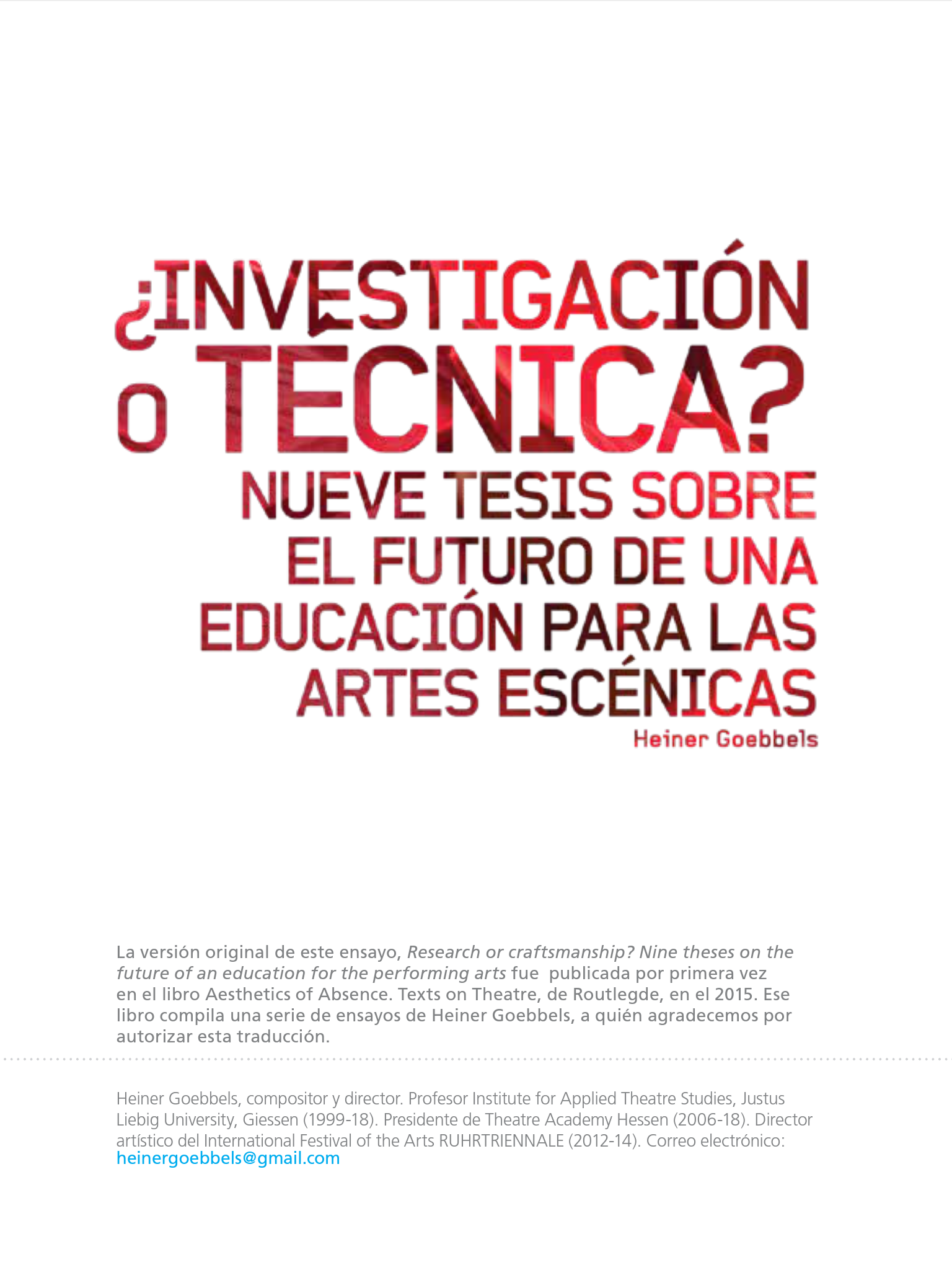Research or Craftsmanship? Nine theses on the future of an education for the performing arts

Published 2019-12-05
Keywords
- education,
- performing arts,
- future,
- research,
- craftsmanship
How to Cite
Copyright (c) 2019 Heiner Goebbels

This work is licensed under a Creative Commons Attribution-NonCommercial 4.0 International License.
Abstract
When we talk about education in the performing arts, we talk about the end of a long chain. The conservatoires1 for theatre and theatre-related disciplines, for dancers, singers, instrumentalists, actors, directors, stage and costume designers, result from a long development of an aesthetic convention. All these training centres were founded with the sole purpose of providing new talent for the representative institutions, which night after night perform ballets, operas, concerts, theatre and musicals. They are the result of an existing artistic practice in action, which is at least 100 years old - the basic premises for opera training are actually quite a bit older. They were not built in order to renew aesthetics, not to mention questioning the structures or institutions for which they educate. And thus the training for the existing "˜market"™ is the last and most inert link in a chain of art forms, arts institutions and education for the arts institutions.
Downloads
References
- Abwesenheit, GS. (2006). Eine performative Ästhetik des Tanzes. Bielefeld: Transcript.
- Eiermann, A. (2009) Die Alterität der Aufführung und die Entgrenzung der Künste, Bielefeld:Transcript.
- Luhmann, N. (1995). Die Kunst der Gesellschaft. Frankfurt am Main: Suhrkamp.
- Müller, H. (2009). Werke vol. 10: Gesprache 1, Frankfurt am Main: Suhrkamp.
- Stein, G. (1998 [1935]). Lectures in America. En CR. Stimpson y H. Chessman (eds.), Gertrude Stein: Writings 1932-1946, pp. 191-336. Nueva York: Penguin.
